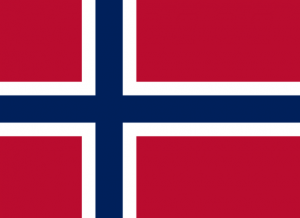Difference between revisions of "Language/Norwegian-bokmal/Grammar/Nouns"
m (Quick edit) |
m (Quick edit) |
||
| Line 40: | Line 40: | ||
<hr>If you have any questions, please ask them in the comments section below.<br>Feel free to edit this wiki page if you think it can be improved. 😎 | <hr>If you have any questions, please ask them in the comments section below.<br>Feel free to edit this wiki page if you think it can be improved. 😎 | ||
==Related Lessons== | |||
* [[Language/Norwegian-bokmal/Grammar/Adjectives|Adjectives]] | |||
* [[Language/Norwegian-bokmal/Grammar/Plurals|Plurals]] | |||
* [[Language/Norwegian-bokmal/Grammar/Gender|Gender]] | |||
* [[Language/Norwegian-bokmal/Grammar/Questions|Questions]] | |||
* [[Language/Norwegian-bokmal/Grammar/Pronouns|Pronouns]] | |||
* [[Language/Norwegian-bokmal/Grammar/Negation|Negation]] | |||
* [[Language/Norwegian-bokmal/Grammar/Future-Tense|Future Tense]] | |||
* [[Language/Norwegian-bokmal/Grammar/Conditional-Mood|Conditional Mood]] | |||
{{Norwegian-bokmal-Page-Bottom}} | {{Norwegian-bokmal-Page-Bottom}} | ||
Revision as of 23:05, 25 February 2023
Hi Norwegian Bokmål learners! 😊
In today's lesson, we will be discussing the basics of Norwegian Bokmål grammar related to nouns. We will cover topics such as gender, number, and case. By the end of this lesson, you should have a better understanding of how to use nouns in Norwegian Bokmål.
Gender
Nouns in Norwegian Bokmål can be either masculine, feminine, or neuter. The gender of a noun is usually determined by its ending. For example, the word for "book" is "bok", which is a feminine noun.
Masculine Nouns
Masculine nouns typically end in "-er" or "-en". For example, the word for "teacher" is "lærer", which is a masculine noun.
Feminine Nouns
Feminine nouns typically end in "-e" or "-a". For example, the word for "book" is "bok", which is a feminine noun.
Neuter Nouns
Neuter nouns typically end in "-et" or "-t". For example, the word for "table" is "bord", which is a neuter noun.
Number
Nouns in Norwegian Bokmål can be either singular or plural. The number of a noun is usually determined by its ending.
Singular Nouns
Singular nouns typically end in "-en" or "-et". For example, the word for "book" is "bok", which is a singular noun.
Plural Nouns
Plural nouns typically end in "-er" or "-er". For example, the word for "books" is "bøker", which is a plural noun.
Case
Nouns in Norwegian Bokmål can be either nominative, accusative, or dative. The case of a noun is usually determined by its ending.
Nominative Nouns
Nominative nouns typically end in "-en" or "-et". For example, the word for "book" is "bok", which is a nominative noun.
Accusative Nouns
Accusative nouns typically end in "-en" or "-et". For example, the word for "book" is "bok", which is an accusative noun.
Dative Nouns
Dative nouns typically end in "-en" or "-et". For example, the word for "book" is "bok", which is a dative noun.
If you have any questions, please ask them in the comments section below.
Feel free to edit this wiki page if you think it can be improved. 😎
Related Lessons
